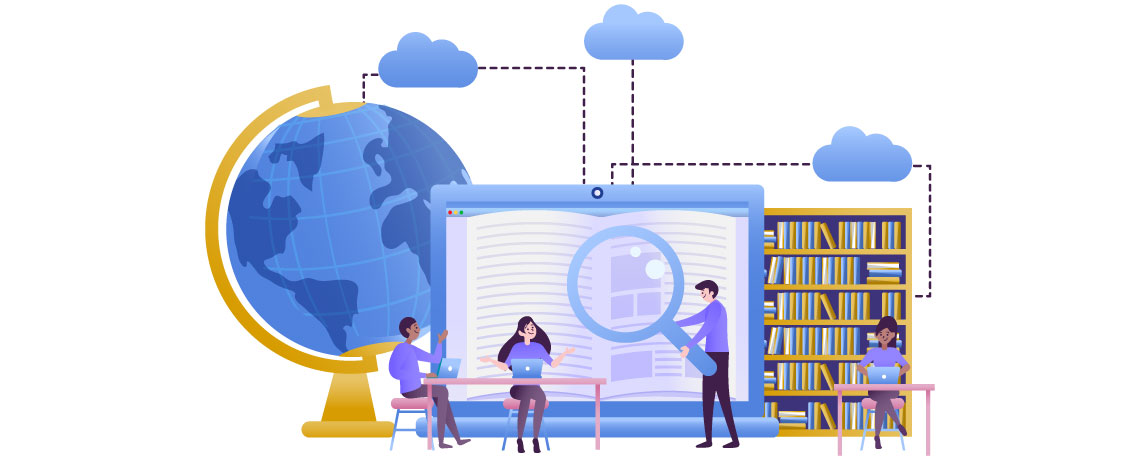Top 5 Law Courses After 12th to Shape Your Legal Career

Law is the backbone of society, shaping justice, governance, and human rights. From drafting policies to defending civil liberties, legal professionals play a pivotal role in balancing power and equity. The rise of globalisation, digital innovation and regulatory complexities has fuelled the demand for skilled lawyers, compliance officers and legal consultants.
India’s legal market is transitioning from traditional litigation to corporate advisory, tech-driven services, and global arbitration. The Indian legal profession is one of the largest in the world, with over 1.4 million enrolled advocates nationwide. As interest in legal careers grows, choosing the right law courses after 12th is crucial for aspiring students. This blog will break down the same for you. Let’s begin.
Law Courses After 12th: Your Gateway to a Dynamic Career
Gone are the days when law was only a postgraduate pursuit. Today, students can dive into legal education right after class 12 through integrated programmes or specialised undergraduate degrees. Here are a few of the most popular legal courses that will give you multidisciplinary skills in addition to legal expertise:
- B.A. LL.B. (Hons.) – 5 Years
A B.A. LL.B. (Hons.) combines humanities with law, offering a holistic understanding of sociology, political science, and legal systems.- Curriculum: Corporate Legal Consultancy, Public International Law, Policy Engagement, Sociology, Political Science
- Career Paths: Litigation, Civil Services, NGOs, Legal Journalism.
- BBA. LL.B. (Hons.) – 5 Years
The B.B.A. LL.B. (Hons.) merges business administration with legal studies, ideal for corporate law aspirants.- Curriculum: Financial Accounting, Effective Communication, Constitutional Law, Criminal Law, Property Law.
- Career Paths: Corporate Lawyer, Legal Advisor, Compliance Manager.
- B.Tech. LL.B. (Hons.) – 6 Years
A niche programme like B.Tech. LL.B. blends engineering with IP Law or Cyber Law, catering to tech-driven legal fields.- Curriculum: Cyber Law, Intellectual Property Rights, AI Policy, Civil Engineering, Computation and Mathematics
- Career Paths: IP Attorney, Tech Policy Analyst, Cyber Law Expert.
- B.Com LL.B. – 5 Years
This 5-year integrated program merges commerce disciplines with legal studies, preparing students for careers in corporate, consultancy and business.- Curriculum: Civil Law, Labour Law, Criminal Law, Economics, Marketing Management Accounting.
- Career Paths: Corporate Lawyer, Tax Consultant, Compliance Officer, Legal Advisor for Businesses.
- B.Sc. LL.B. – 5 Years
B.Sc. LL.B course combines the study of science and law, equipping students with knowledge in both fields.- Curriculum: Contract Law, Legal Theory, Biotechnology, Chemistry, Life Sciences, IT & Communications, Modern Physics.
- Career Paths: Environmental lawyer, patent attorney, forensic legal expert, and pharma regulation specialist.
Diploma Courses in Law after 12th
Designed to enhance expertise in niche legal fields, diploma courses are ideal for skill development and career advancement. Following are the most popular diploma courses available after 12th:
- Diploma in Criminal Law
- Diploma in Taxation Law
- Diploma in Cyber Law
- Diploma in Business Law
- Diploma in Human Rights Law
- Diploma in Intellectual Property Rights
- Diploma in Alternative Dispute Resolution
Certification Courses in Law after 12th
Shorter and more focused certificate courses provide targeted skill upgrades in 3-12 months. Here are some of the popular choices:
- Certification in Corporate Law
- Certification in Business Law
- Certification in Human Rights
- Certification in Cyber Law
- Certificate in Legal Drafting
- Certificate in Mergers & Acquisitions
- Certification in Consumer Protection Law
Eligibility Criteria for Law Courses after 12th
Law courses are accessible to students from any stream in class 12, with one exception: B.Tech LL.B. requires a science (PCM) background or Mathematics in class 12th. Admission to most law programmes is determined through national-level/state-level entrance exams. Below is the eligibility overview for popular law courses after 12:
| Courses | Eligibility Criteria |
|---|---|
| Integrated Programmes (B.A. LL.B. / B.B.A. LL.B.) | Class 12 with 50–60% marks + CLAT/LSAT scores |
| B.Sc. LL.B. | Class 12th with min 45-50% marks +CLAT/AILET scores |
| B.Tech. LL.B. | Class 12th with PCM + high CLAT ranks. |
| B.Com LL.B. | Class 12th with min 45-50% marks |
Career Opportunities After Law Courses
A law degree unlocks diverse career paths beyond traditional courtroom roles. Graduates from this course can join a public or private firm with roles like policy advisor, public defender, or forensic expert. The programme hones analytical, problem-solving and communication skills, opening doors in HR, education, and corporate compliance. Here are some of the career options after law courses.
| Role | Industry | Avg. Salary (Freshers) |
|---|---|---|
| Corporate Lawyer | Law Firms, MNCs | ₹6–15 LPA |
| Legal Analyst | Fintech, Startups | ₹4–8 LPA |
| Judiciary (Civil Judge) | Government | ₹12–18 LPA |
| IP Attorney | Pharma, IT | ₹8–20 LPA |
| Legal Journalist | Media | ₹3–6 LPA |
Mahindra University’s School of Law: Redefining Legal Education
Mahindra University’s School of Law is committed to transforming legal education through interdisciplinary learning, practical training, and a research-driven approach. With a dynamic curriculum that seamlessly blends the Indian legal framework with global perspectives, ensuring students master the latest legal insights and practical expertise.
Beyond academics, students benefit from a modern library, extensive research resources and a learning environment that nurtures critical thinking and ethical practice. Mahindra University’s innovative approach to legal education empowers students to build a just, progressive society while excelling in a globally evolving legal landscape. The university offers a wide range of law programmes, including:
Why Choose Mahindra University for Law Education?
- 100% Ph.D. faculty from NLUs and top international law schools
- Contemporary curriculum with a global edge
- Hands-on learning through internships, moot courts, and legal aid clinics
- Interdisciplinary approach to legal education
- Vibrant startup ecosystem for aspiring entrepreneurs
- Advanced learning infrastructure
Revolutionising Law: The Mahindra University Approach to Legal Studies
Innovative Curriculum
The curriculum emphasises problem solving, industry innovation and advanced technologies, ensuring that students develop strong analytical and research skills. Through moot courts, legal aid clinics and field trips, students gain practical exposure from their first year.
Experiential Learning & Industry Integration
Mahindra University’s legal education goes beyond textbooks, integrating liberal arts, design thinking and real-world problem-solving. With a strong academia-industry linkage, students participate in industry-sponsored research, legal debates, and scholarly publications. The institution actively encourages startups and innovation, preparing students for dynamic career opportunities.
Internships & Career Support
The university ensures comprehensive placement assistance, equipping students with communication, critical thinking, and leadership skills. Through legal internship and industry collaborations, industry sponsored research, students graduate as professionally competent legal experts, ready to excel in global legal and corporate landscapes.
Parting Notes
Your journey towards an impactful career begins with the critical choice of law courses after 12th. These programs arm you to shape justice, policy, and business landscape, whether you’re drawn to defending human rights through a BA. LL.B. (Hons.) or steering corporate strategy with a BBA. LL.B. Leading institutions like Mahindra University amplify this journey with industry aligned curriculum, global partnership, and advanced learning approaches, preparing you to solve real world challenges from day one.
FAQs
- Which subject is better: LL.B. or B.A. LL.B.?
Your choice between earning a B.A. LL.B., or LL.B. will rely on your interests, professional aspirations, and educational background. As the B.A. LL.B. provides a dual emphasis on the humanities and law studies, and LL.B. offers a more focused and direct path to legal specialization.
- Does B.A. LL.B. have maths?
Mathematics may be part of the BA. LL.B. program, depending on the university. Entrance exams like CLAT and CUET test quantitative aptitude, and some institutions require math as a mandatory subject.
- Is LL.B. hard to study?
Studying for an LL.B. may require dedication and good analytical skills, but it is not always more challenging than other professional courses like MBBS or B.Tech.


















































































































































































































![Arm_Yourself_with_Deep_Business_Knowledge_&_Insights_with_PhD_Program_in_Business_Administration_at_Mahindra_University[1] Arm_Yourself_with_Deep_Business_Knowledge_&_Insights_with_PhD_Program_in_Business_Administration_at_Mahindra_University[1]](https://i0.wp.com/www.mahindrauniversity.edu.in/wp-content/uploads/2023/04/Arm_Yourself_with_Deep_Business_Knowledge__Insights_with_PhD_Program_in_Business_Administration_at_Mahindra_University1.jpg?resize=1140%2C460&ssl=1)
![Emerge_as_a_Forward_thinking_Mechanical_Engineer_with_B_1140x460[1] Emerge_as_a_Forward_thinking_Mechanical_Engineer_with_B_1140x460[1]](https://i0.wp.com/www.mahindrauniversity.edu.in/wp-content/uploads/2023/04/Emerge_as_a_Forward_thinking_Mechanical_Engineer_with_B_1140x4601.jpg?resize=1140%2C460&ssl=1)
![B.Tech_in_Computer_Science_Engineering_(BTech_CSE)_Your_Gateway_to_Become_a_Computer_Genius_1140x460[1] B.Tech_in_Computer_Science_Engineering_(BTech_CSE)_Your_Gateway_to_Become_a_Computer_Genius_1140x460[1]](https://i0.wp.com/www.mahindrauniversity.edu.in/wp-content/uploads/2023/04/B.Tech_in_Computer_Science_Engineering_BTech_CSE_Your_Gateway_to_Become_a_Computer_Genius_1140x4601.jpg?resize=1140%2C460&ssl=1)
![Digital_Marketing_is_Booming_Globally_1140x460[1] Digital_Marketing_is_Booming_Globally_1140x460[1]](https://i0.wp.com/www.mahindrauniversity.edu.in/wp-content/uploads/2023/04/Digital_Marketing_is_Booming_Globally_1140x4601.jpg?resize=1140%2C460&ssl=1)
![MU_Electrical20Computer20Engineering_1140x460[1] MU_Electrical20Computer20Engineering_1140x460[1]](https://i0.wp.com/www.mahindrauniversity.edu.in/wp-content/uploads/2023/04/MU_Electrical20Computer20Engineering_1140x4601.jpg?resize=1140%2C460&ssl=1)
![BA_LLB_Hons_Course_at_Mahindra_University[1] BA_LLB_Hons_Course_at_Mahindra_University[1]](https://i0.wp.com/www.mahindrauniversity.edu.in/wp-content/uploads/2023/04/BA_LLB_Hons_Course_at_Mahindra_University1.webp?resize=1140%2C460&ssl=1)
![Management_&_Business_Administration_is_Tremendously_High[1] Management_&_Business_Administration_is_Tremendously_High[1]](https://i0.wp.com/www.mahindrauniversity.edu.in/wp-content/uploads/2023/04/Management__Business_Administration_is_Tremendously_High1.jpg?resize=1140%2C460&ssl=1)

![whyistraining&placementcellimportant[1] whyistraining&placementcellimportant[1]](https://i0.wp.com/www.mahindrauniversity.edu.in/wp-content/uploads/2023/04/why20is20training2020placement20cell20important1.png?resize=1140%2C460&ssl=1)
![TheDifferencesbetweenRights&Duties[1] TheDifferencesbetweenRights&Duties[1]](https://i0.wp.com/www.mahindrauniversity.edu.in/wp-content/uploads/2023/04/The20Differences20between20Rights2020Duties1.png?resize=1140%2C460&ssl=1)
![sleep_deprivation[1] sleep_deprivation[1]](https://i0.wp.com/www.mahindrauniversity.edu.in/wp-content/uploads/2023/04/sleep_deprivation1.jpg?resize=1140%2C460&ssl=1)
![SelfLoveBlogImage2[1] SelfLoveBlogImage2[1]](https://i0.wp.com/www.mahindrauniversity.edu.in/wp-content/uploads/2023/04/Self20Love20Blog20Image2021.png?resize=1140%2C460&ssl=1)


























































































































